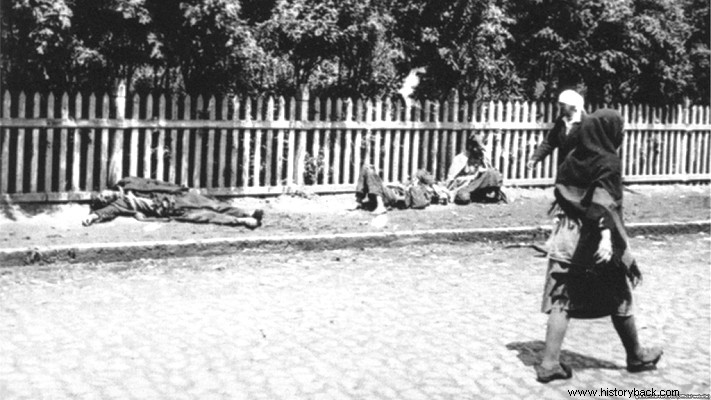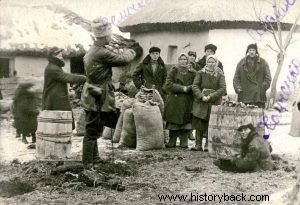
In Ukraine it has not been forgotten. It is also one of the reasons why the inhabitants of the country treated the Germans more friendly and still have anti-Russian feelings. "Golotomor"... Only one word that hides all the horror. In Ukrainian it is a corruption of the phrase "murder by hunger". It was even recognized as genocide by Ukraine and 15 other countries from 2006 to the present.
For the number of victims only estimates can be made. In 2003, a UN decision spoke of 7-10 million victims. More conservative estimates speak of 3.3 million dead. It is worth noting that during the 1937 census ordered by Stalin, the Soviet population was found to have decreased by approximately 8 million.
Stalin reacted in his own "democratic" way. He executed all the chiefs who conducted the census and made a new one that presented the data he and his associates provided. Famines in Ukraine, Moldova and other Soviet "republics" of the erstwhile USSR are related to Stalin's plans for industrialization and collectivization. In Ukraine, it was especially related to the extermination of the kulaks – supposedly prosperous farmers.
In fact Stalin's goal was the disappearance of every "free" cultivator who was not part of a collective. The Stalinist regime baptized the peasants "enemies of the people" and launched a campaign of propaganda and influencing the rest of the population to justify the food shortages that also occurred in the cities.
The famine started in 1931 but the cause of it was the political decisions of the Kremlin. Collectives did not yield sufficient crops, while grain cultivation was replaced by other export or industrial crops such as sugar beet and cotton. Also while there was a shortage, the Soviet regime increased grain exports.
The famine in Ukraine was artificial, a creation of the regime, intended to hurt Ukrainians who had not been assimilated by the Soviet regime. This is made clear by the special provisions that applied only to Ukraine by order of Moscow. Large numbers of Ukrainian peasants were sent to the gulags. Those who stayed behind and tried to leave the famine zones were executed. Many western Ukrainians crossed into Poland en masse.
Deaths, cannibalism
The first problems were reported as early as 1931. In the cities, food began to be rationed from the winter of 1933.Ration holders began to gather at night outside shops waiting hours, sometimes days, for a loaf of bread bread. In the countryside, Soviet collectives lacked even seed to sow as they had to deliver it either for consumption or for export . The peasants who joined compulsorily were ordered to hand over whatever animals they had.
Soviet authorities in Ukraine had requested seed as early as the spring of 1932 but received no response. The situation soon got out of hand. People were dying everywhere with the authorities simply not caring. Some, in order to survive, resorted to cannibalizing corpses, paying with their lives if they were caught.
“I haven't become a cannibal yet but I'm not sure I'll avoid it. The good die first as. Those who refuse to steal, those who do not become prostitutes die. Those who give food to others die. Those who refuse to eat corpses die. Those who refuse to kill relatives die. Parents who deny cannibalism die before their children", said a doctor.
The regime was content to issue a statement:"Eating one's children is barbarism," it said. There have been at least 2,500 convictions for cannibalism.
Stalin's close associate at the time Lazar Kaganovich went so far as to accuse the starving people of being lazy and that what is said about famine is just propaganda slander against "our father Stalin".
Stalin himself said that hunger was a conspiracy against him and that the peasants used hunger as a weapon against him. He was saying this while traveling on his private train to the Black Sea resort of Sochi. And in the kitchen of the train, the finest dishes were prepared.
Stalin eventually concluded that the famine was the result of "betrayal" and collaboration with "imperialist" Poland.

Soviet official seizes wheat from farmers.
